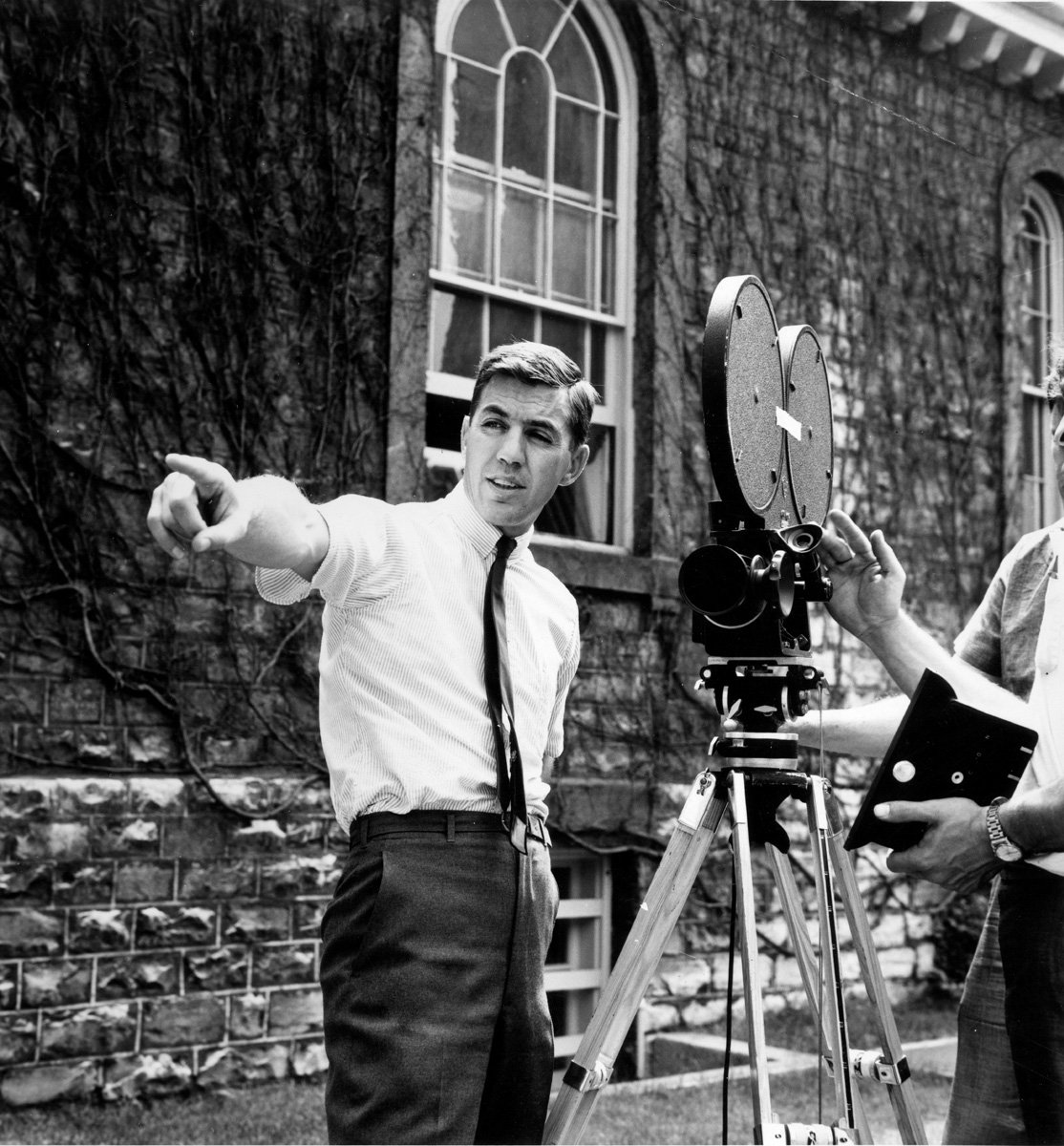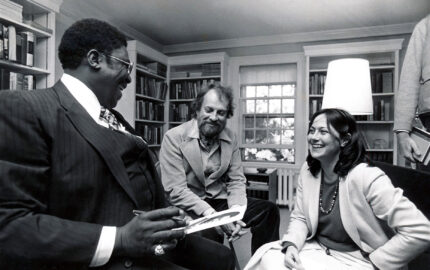Douglas Leiterman, NF ’54, an acclaimed journalist in Canada, died on December 13, 2012 at his winter home in Vero Beach, Florida. He was 85. After his Nieman year, he covered politics for Southam News Services in Ottawa. During regular appearances on television, he developed a reputation as a tough interviewer who called out politicians about their facts. He is best known for his role in creating the television show “This Hour Has Seven Days” for the Canadian Broadcasting Corporation (CBC)
When I was a kid growing up in Ottawa, Canada in the mid-1960s, my dad worked for then Canadian Prime Minister Lester B. Pearson. I overheard a fair amount of political talk, but I mostly ignored it as I was more interested in hockey. But one thing I do remember was my dad frequently talking about this show called “This Hour Has Seven Days.” It was a big deal.
The show, launched in 1964 and cancelled after 50 episodes, was the brainchild of two men: one was a “soft-spoken dynamo” named Douglas Leiterman, NF ’54.
It’s hard to overstate the importance of “This Hour Has Seven Days.” Some TV historians say the show changed journalism in Canada, in the same way that a few years later coverage of the Watergate scandal effected changes in the U.S.
Writing in The New York Times, Martin Knelman offered a thumbnail sketch of the show: “Broadcast live from a Toronto studio on Sunday nights, the show was a combination of skits, music, documentary segments and news flashes delivered with attitude. Many people loved it, many people hated it, and at its peak, three million Canadians—one out of every three English-speaking adults at the time—watched it. And on Monday morning, the whole country would be talking about it.”
After the show—which the CBC management called “dangerous”—was cancelled, the uproar from the Canadian viewing public was so great, it actually became a subject of a parliamentary inquiry. Within a year, the head of the CBC was gone as a result.
One last note: Leiterman’s passionate journalism intrigued people at the U.S. network CBS. They hired him to help them develop a public affairs news show. Perhaps you’ve heard of it… “60 Minutes.”
When I was a kid growing up in Ottawa, Canada in the mid-1960s, my dad worked for then Canadian Prime Minister Lester B. Pearson. I overheard a fair amount of political talk, but I mostly ignored it as I was more interested in hockey. But one thing I do remember was my dad frequently talking about this show called “This Hour Has Seven Days.” It was a big deal.
The show, launched in 1964 and cancelled after 50 episodes, was the brainchild of two men: one was a “soft-spoken dynamo” named Douglas Leiterman, NF ’54.
It’s hard to overstate the importance of “This Hour Has Seven Days.” Some TV historians say the show changed journalism in Canada, in the same way that a few years later coverage of the Watergate scandal effected changes in the U.S.
Writing in The New York Times, Martin Knelman offered a thumbnail sketch of the show: “Broadcast live from a Toronto studio on Sunday nights, the show was a combination of skits, music, documentary segments and news flashes delivered with attitude. Many people loved it, many people hated it, and at its peak, three million Canadians—one out of every three English-speaking adults at the time—watched it. And on Monday morning, the whole country would be talking about it.”
After the show—which the CBC management called “dangerous”—was cancelled, the uproar from the Canadian viewing public was so great, it actually became a subject of a parliamentary inquiry. Within a year, the head of the CBC was gone as a result.
One last note: Leiterman’s passionate journalism intrigued people at the U.S. network CBS. They hired him to help them develop a public affairs news show. Perhaps you’ve heard of it… “60 Minutes.”




